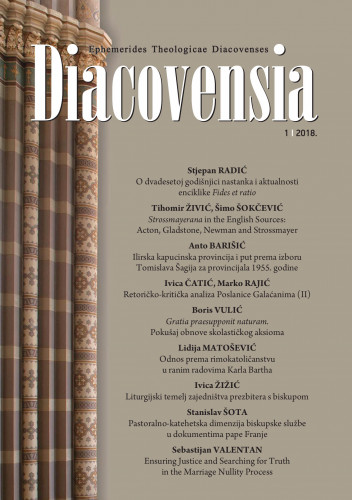Klijenti imaju pravo na pravedno suđenje. Suci i ostali službenici osiguravaju pravednost čuvanjem službene tajne (usp. kan. 1455, CIC 1983.). To je nužno u kaznenom suđenju, a u nekim slučajevima i u parničnom suđenju. Suci su također dužni čuvati tajnu glede rasprave među njima u zbornom sudu prilikom donošenja presude. Ukoliko prekrše zakon o čuvanju tajne, kažnjavaju se primjerenim kaznama, kao i otpuštanjem s dužnosti. Sudsko ispitivanje stranaka je srž postupka. Ova faza vodi prikupljanju važnih informacija koje mogu dovesti suca do istine (čl. 177, DC). „Najbolji način dobivanja dokaza su izjave supružnika. Očekuje se da će supružnici biti iskreni i pošteni kada opisuju svoj neuspjeli brak.“ Sudac je dužan podsjetiti stranke i svjedoke o njihovoj dužnosti da govore čitavu istinu i samo istinu.; Clients have a right to a fair trial. Judges and other officials ensure fairness by observing secrecy (cf. can. 1455, CIC 1983). This is necessary in a penal trial and in some cases also in a contentious trial. Judges are also required to maintain confidentiality concerning the discussion among them in a collegiate tribunal when making their judgement. If they breach the law of secrecy, they are punished with appropriate penalties and also with dismissal from office. The judicial examination of the parties is the core of the process. This phase leads the gathering of that important information which can lead the judge to the truth (art. 177, DC). “The best way of obtaining evidence are the statements of the spouses. The spouses are expected to be sincere and honest when describing their failed marriage.” A judge is obliged to remind the parties and the witnesses about their duty to speak the whole truth and only the truth.
Sažetak

 Diacovensia : teološki prilozi : 26,1(2018) / glavni i odgovorni urednik, editor-in-chief Šimo Šokčević.
Diacovensia : teološki prilozi : 26,1(2018) / glavni i odgovorni urednik, editor-in-chief Šimo Šokčević.